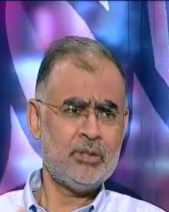Nadeem M Qureshi
Pakistan International Airlines, the national flag carrier of Pakistan, once a source of pride for the whole nation, is in trouble. Over the last five years it has reported cumulative losses of Rs. 160 billion – this is three times the amount Pakistan spends every year on education. Financial woes aside, service has suffered. Flights are routinely delayed. Scares and scandals abound. Among recent incidents: A flight to Manchester was intercepted and escorted by British fighter planes due to an inflight altercation. A flight attendant was arrested with concealed drugs on her body. A scuffle at the carrier’s head office between two competing union groups – each aligned with a major political party – resulted in aerial firing and injuries.
The PML-N government of Nawaz Sharif seems determined to set things right. To this end it has appointed a special advisor on aviation and set up a high level cabinet committee to look into the carrier’s affairs and recommend changes. But any attempt to cure the ailing carrier must begin by understanding the nature of its illness.
There are two dimensions to the issue. One is internal and in the control of those who run PIA. The other – the airline’s operating environment – is not.
Internally, much has gone wrong. Influential politicians have, over the years, exercising their customary nepotism and cronyism, stuffed the airline with thousands of unneeded employees. As a consequence, PIA has about 500 employees per aircraft. Most profitable airlines manage to keep this ratio below 200. Singapore airlines, for example, has 140 employees per aircraft.
The extension of political party tentacles into PIA’s trade unions has made work rule changes and firing of employees almost impossible. The airline’s chairman is usually a retired army general or air force officer with little or no understanding of commercial and management realities.
There is rampant corruption at all levels. Kickbacks are taken on the purchase of everything from tissue paper to jet engines. Tens, or sometimes hundreds of millions of dollars are siphoned into private bank accounts on the purchase and lease of aircraft.
Those who run PIA often adduce its losses to an ageing fleet of fuel inefficient aircraft. But this is a spurious argument. The US airline, Allegiant, even though it operates a fleet of near obsolete aircraft, has made a profit in each of the 10 previous years, in the most competitive aviation market in the world. Proof, if proof is needed, that smart strategy and sharp management can overcome structural disadvantages.
External problems are no less intractable. A wrongheaded open skies policy instituted by Nawaz Sharif in a previous incarnation as Prime Minister has allowed foreign airlines to make inroads into PIA’s markets. These are primarily Gulf based carriers which, with their brand new fuel efficient aircraft, top notch management, streamlined labour costs and work rules, and growing route networks are eating PIA’s lunch in the international market. Locally, new competition has been created by granting operating licenses to private carriers – such as Shaheen and Air Blue. These carriers, not subject to the severe operating disadvantages of PIA, have cherry picked profitable high density routes between major cities. PIA is left to swallow losses on lower density, but nevertheless vital routes, linking smaller cities.
For every day that it flies PIA loses Rs 90 million. This cannot go on for much longer. So what can be done? Some radical and unpopular changes – locally and internationally – need to be made. Internally, professional managers have to take over from retired generals, air force officers, and put-to-pasture bureaucrats. Unions need to be reined in, and their close affiliation with major political parties severed. Political influence in the airline’s affairs – especially the forced recruitment of cronies and relatives – must stop.
Externally, the open skies policy must be modified. On international routes foreign carriers cannot be allowed unrestricted access to the Pakistani market. Some kind of traffic sharing formula must be worked out
On domestic routes private Pakistani carriers – such as Shaheen and Air Blue – cannot be allowed to cherry pick profitable routes. Capacity on these routes should be allocated by the regulator. And all carriers obliged to share the burden, now borne solely by PIA, of providing service to smaller cities in the wider public interest.
The phrase ‘coming in on a wing and a prayer’ was used during World War II to describe returning war planes that had been damaged by enemy fire. The war has long ended, and PIA’s planes are not exposed to enemy fire. But it seems to those who remember the old, thriving PIA that the airline today indeed does fly on a wing and a prayer.
Nadeem M Qureshi is Chairman of Mustaqbil Pakistan and can be reached on Twitter at: @nmq
Nadeem M Qureshi, Chairman, Mustaqbil Pakistan
https://vimeo.com/channels/mustaqbilpakistan
https://www.facebook.com/Mustaqbil.Pakistan
